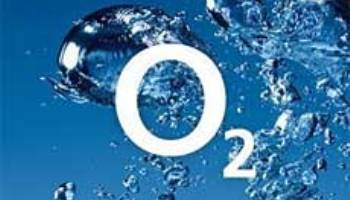O2 Picks Ericsson For 4G Network Build

O2 has selected Ericsson for the construction of its next generation 4G mobile phone network in the UK
The construction phase of Britain’s 4G networks continues to ramp up after Ericsson announced that O2 has selected it to build its LTE network.
Ericsson is providing an Evolved Packet Core (EPC), which is the central network element of the LTE system, for 100 percent of O2’s network. It is also deploying the latest RBS 6000 multi-standard radio base stations, for 50 percent of O2’s radio access network in the UK.
4G Contract
“We’ve been a 3G provider for O2 since 2010 and we’re pleased that they’ve now also selected us to provide the latest technology for 2G services, as well as 4G capability,” said Anders Runevad, president of Western & Central Europe at Ericsson.
 The Swedish telecoms giant also boasted that the agreement strengthens its relationship as a principle telecom infrastructure supplier for O2, which is of course owned by Spanish telecoms giant Telefonica.
The Swedish telecoms giant also boasted that the agreement strengthens its relationship as a principle telecom infrastructure supplier for O2, which is of course owned by Spanish telecoms giant Telefonica.
“Ericsson will become O2’s sole supplier of EPC in the UK and deployment has commenced,” said Ericsson. “This includes Evolved Packet Gateway on the SSR 8000 Smart Services Router family and SGSN-MME on the Ericsson Blade System.”
“This network transformation will put us in a great position for a seamless launch of 4G services this year,” said Andrew Conway, Head of Mobile Access at O2. “The outcome of the recent spectrum auction allows us to ensure the widest and deepest possible reach for new services.”
O2 confirmed that it intends to spread the rollout of its 4G network to most of the UK over the next four years.
“In terms of coverage, we are committed to the obligation set out by Ofcom – we will accelerate the rollout of our 4G network and see O2’s 4G network reach 98 percent of the UK population by the end of 2017,” an O2 spokesperson told TechweekEurope via email.
Earlier this month, O2 won two lots of 10MHz of 800MHz spectrum in return for a licence payment of £550 million.
Network Build
Mobile operators are currently acutely aware of the growing need to ensure that their mobile networks have the much needed bandwidth and capacity to cope with the growing use of data hungry smartphones in the UK. And in addition, operators are also keen to ensure their networks are robust as possible.
O2 has previously suffered some embarrassment regarding the latter. Last October for example O2 admitted a network outage that affected roughly one in ten of its 22 million customers in the UK. This came after a bigger problem in July, when O2 customers across the whole of the UK were left unable to make calls, send texts or use mobile data services following a major outage on its 2G network.
And in 2011 O2 customers were affected by outages in East London, North London, Kent, Essex and Sussex, although to be fair to O2, these issues were mainly down to theft and vandalism.
Prior to that, O2 was also forced to admit in December 2009 that its London network was not coping with the so called ‘data strain’ from smartphones, when it suffered a number of embarrassing network failures in the capital city. The operator later told TechweekEurope it had significantly increased the number of mobile phone base stations in London, because the city contains the highest concentration of smartphone users in the UK.
Meanwhile O2’s decision to opt for Ericsson could be viewed as something of a snub to Huawei, Ericsson’s Chinese telecom equipment rival, and which has been competing hard in the mobile sector to win business in Europe after being locked out of American infrastructure projects.
That will not trouble Ericsson in the slightest, after it said it has now signed 130 LTE/EPC contracts in 51 countries on six continents. It also said that the O2 agreement (which includes customer support services), “strengthens Ericsson’s position as primary telecom infrastructure supplier for O2 and as a 4G/LTE vendor in the UK.”
Are you fluent in the language of the Internet? Find out with our quiz!